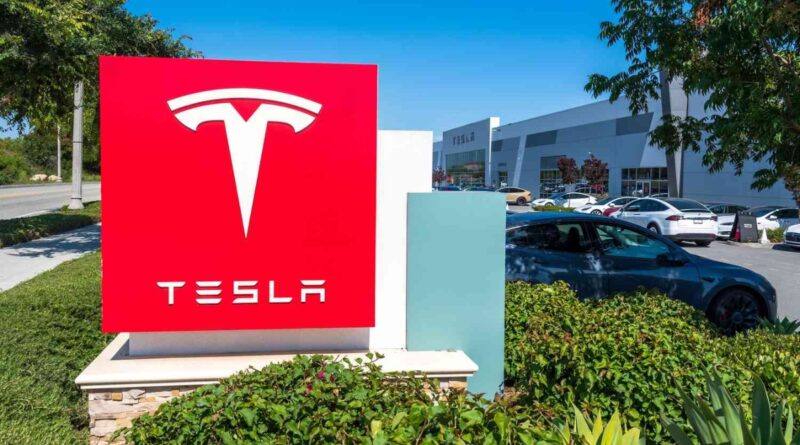Amazing Indian Minds Now Drive A Vibrant Revolution At Tesla
By WFY Bureau | Economy & Business | June 2025 Edition
India’s Tech Vanguard: The Diaspora Minds Powering Elon Musk’s Empires
In the high-stakes arena of global innovation—where rockets soar beyond Earth, electric vehicles redefine roads, and governments are challenged to rethink systems—one name looms large: Elon Musk. Known for his relentless drive to achieve what many deem implausible, Musk’s vision spans Tesla, SpaceX, X (formerly Twitter), Neuralink, and beyond. But behind the spotlight lies an unsung cohort shaping these ambitions into operational reality: a remarkable group of Indian-origin professionals whose intellect and dedication are leaving an indelible mark on the tech world.
From artificial intelligence and financial stewardship to rocket engineering and civic reform, these individuals have become pivotal forces in Musk’s ventures. Their stories are not just tales of professional success but also of migration, resilience, and global contribution—echoing the broader narrative of the Indian diaspora’s rise in the knowledge economy.
Ashok Elluswamy: The Brain Behind Tesla’s Self-Driving Revolution

Ashok Elluswamy’s journey—from Tamil Nadu to the heart of Silicon Valley—encapsulates India’s engineering pedigree. A graduate of the College of Engineering, Guindy, Chennai, and a Master’s degree holder in Robotics from Carnegie Mellon University, Ashok was the first engineer recruited to Tesla’s Autopilot team in 2014. He now leads the company’s Artificial Intelligence and Autopilot Software division as Vice President, managing one of Tesla’s most transformative programmes.
In an environment where memory constraints once limited the platform to a mere 384 KB, Ashok and his team developed foundational software that would eventually run on billions of miles of real-world driving data. Today, Tesla’s Full Self-Driving (FSD) system has logged over 1 billion miles globally, a milestone few companies can boast. Elluswamy’s leadership has been instrumental in refining Tesla’s neural net and vision-based autonomy approach, diverging from Lidar-based strategies used by competitors.
Elon Musk publicly acknowledged Elluswamy’s role, stating, “Without Ashok and our team, Tesla would just be another car company looking for an autonomy supplier that doesn’t exist.” In 2025, Tesla’s FSD Beta Version 12 has been deployed across North America and parts of Europe, showcasing Ashok’s technical foresight.
Vaibhav Taneja: Balancing the Ledgers of Innovation

While engineering might capture headlines, innovation requires solid financial infrastructure. At Tesla, this is led by Vaibhav Taneja, the Delhi University commerce graduate who now serves as Chief Financial Officer (CFO). Taneja joined Tesla in 2017 after the automaker acquired SolarCity, and by 2023, he had risen to become Tesla’s CFO—only the second Indian-origin CFO at the firm, following Deepak Ahuja.
Taneja’s ascent was accompanied by massive responsibility: managing a company with a $900 billion market cap and operations in over 40 countries. Under his leadership, Tesla reported revenue of $123.9 billion in FY 2024, a 14% increase year-on-year, driven by robust vehicle sales, energy storage, and software subscriptions.
Interestingly, Taneja’s 2024 remuneration—$139 million, including stock options—surpassed that of Google CEO Sundar Pichai and Microsoft’s Satya Nadella. His role in shaping Tesla’s global financial structure, especially its India strategy, has been instrumental. Taneja now sits on the board of Tesla India Motors and Energy Pvt Ltd, an entity incorporated in Bengaluru, which is set to become Tesla’s South Asia hub.
Sanjeev Sharma: From Indian Railways to SpaceX Launchpads

A narrative of sheer grit and reinvention, Sanjeev Sharma began his professional life as an engineer in the Indian Railways, working for over a decade before emigrating to the United States to pursue advanced studies. Fast-forward to 2025, and he’s a Principal Engineer at SpaceX, contributing to some of the world’s most ambitious spaceflight missions.
Sharma was central to the 2024 Starship Booster Catch mission—where a massive booster was caught by SpaceX’s launch tower arms, eliminating the need for conventional landing legs. It was a bold gamble that paid off, reducing refurbishment time and increasing launch cadence.
His story went viral on professional networks like LinkedIn, with former classmates and railways colleagues expressing admiration for his transformation. Sharma is now part of Musk’s elite Starship team, pushing the boundaries of interplanetary travel, and contributing to a Mars colonisation roadmap with a tentative unmanned launch set for 2027.
Akash Bobba: The 22-Year-Old Disrupting U.S. Government Systems

At just 22, Akash Bobba represents a new wave of diaspora tech talent. A recent graduate of the University of California, Berkeley, Bobba was tapped in early 2025 by Musk’s Department of Government Efficiency (DOGE)—a private initiative aimed at overhauling outdated U.S. administrative systems through AI, automation, and blockchain.
Bobba had already built a reputation in campus circles for solving large-scale data integrity issues and was once dubbed “the coder who never sleeps” by peers. At DOGE, he is applying machine learning algorithms to optimise resource allocation and digitise paper-heavy processes that date back to the 1970s.
His inclusion raised eyebrows—especially in Washington bureaucratic circles—but Bobba has since delivered tangible results: reducing form processing time by 60% in a pilot programme across California DMV offices. For Musk, Bobba represents what happens when “raw talent meets structural inefficiency.”
Sriram Krishnan: Silicon Valley’s Diplomat for Elon Musk

Sriram Krishnan, a Chennai-born technologist, is no stranger to high-stakes turnarounds. Having held senior roles at Microsoft, Facebook, and Snap, Krishnan was brought in during Elon Musk’s acquisition of Twitter in late 2022 to stabilise operations, advise on engineering workflows, and recalibrate user policies amidst a storm of public criticism.
Though his stint was temporary, his impact was considerable. He helped re-establish Twitter’s core engineering team after mass layoffs and served as an informal advisor to Musk during turbulent early months. By 2024, Krishnan had returned to Andreessen Horowitz as a General Partner but remains close to Musk’s circle.
His strategic communication skills, ability to bridge cultural gaps, and comfort with both hard tech and people management make him a standout figure in Silicon Valley.
A Broader Pattern: The Diaspora Dividend
The stories of these individuals point to a broader truth: the Indian diaspora’s growing clout in shaping global tech. According to a 2023 report by the Migration Policy Institute, over 75% of Indian-origin professionals in the U.S. hold positions in STEM fields, with many leading innovation in AI, finance, and aerospace.
In 2024 alone, Indian-origin CEOs and executives were at the helm of companies generating over $4 trillion in combined market value. The combination of rigorous education, multilingual capabilities, and cross-cultural adaptability gives them a unique edge.
Furthermore, with India set to overtake Japan as the world’s third-largest economy by 2027, the link between global diaspora talent and India’s domestic innovation ecosystem is only set to strengthen. Initiatives like Startup India, Digital India, and a slew of state-level diaspora engagement programmes (e.g., Tamil Nadu’s “Yaadhum Oore”, Kerala’s “Roots”) have begun to create fertile ground for returnees and cross-border collaborations.
The Road Ahead: Beyond Elon Musk
While Elon Musk’s ventures offer a high-profile platform, Indian-origin talent is now diffused across every frontier—from renewable energy and climate tech to biotech and quantum computing. Yet their roles in Tesla, SpaceX, and Musk’s civic experiments serve as a potent symbol of the diaspora’s journey: from the margins to the command centres of global innovation.
As India enhances its own tech prowess and global influence, it’s not difficult to imagine a future where today’s diaspora leaders become tomorrow’s bridge-builders—connecting ambition with heritage, and Silicon Valley with South Asia.
DISCLAIMER: This article has been independently prepared by the WFY Bureau based on publicly available information, verified data sources, and editorial research. It reflects current developments up to June 2025. All individuals mentioned are cited in a journalistic context with no affiliation implied unless explicitly stated. The WFY makes every effort to ensure accuracy and relevance, but facts are subject to change over time.




